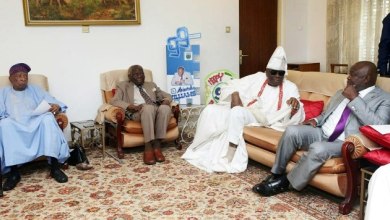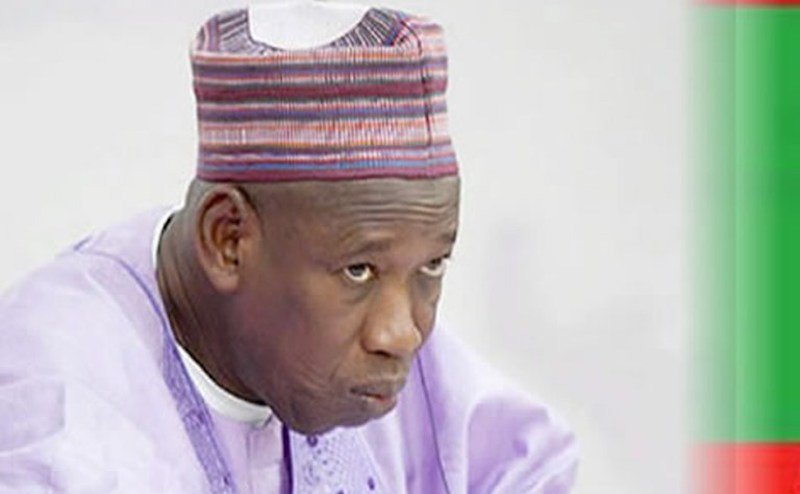By Professor Akinjide Osuntokun
There has been so much controversy on who owns Lagos in recent times between the indigenes and the non-indigenes, between “omo Eko” (indigenes ) and “ara Eko” ( residents), that a little knowledge of the history of Lagos may remove the blinkers from our eyes.The indigenes of Lagos have a saying “Awori lo l’Eko” meaning Lagos belongs to the Awori. The Awori were the original settlers of Lagos and their settlements still exist in various Awori settlements from Iddo, Iganmu, Apapa, Isheri, and so on up to Otta. These Awori settlements were founded around the 12th century during the evolution of similar political entities in Yorubaland.It was not until the 15th century that Oba Ewuare the Great sent an expedition to the island now known as Lagos for the purpose of making it a slave port for evacuating war captives to Europe through the Portuguese, the first Europeans to make contact with the Benin Empire. The Bini settlement or camp (Eko) was separate from the Awori villages and settlements and there was no attempt by the Bini camp to lord it over the Aworis. Waves of people from neighboring Ijebu, Remo and Egba territories came to Lagos virtually overwhelming the Awori and the Bini camp. But since they were all of the same culture there was no acrimonious contention about indigenous rights and the rights of newcomers. The Bini group hunkered down around their settlement at Igha Idugaran (pepper farm ).The prestige of the Benin Empire made the settlement to be respected and the place grew into a kingdom replicating in a small way the royalty of Benin and its palace chiefs on the island the Portuguese named Lagos, but which the Yoruba’s, appropriating the Bini word for camp, called Eko. The independence of the Awori settlements on the mainland continued to be respected even until today and throughout the colonial period. The sister Empire of Oyo also put down a toehold at Ajase, west of Lagos, which the Portuguese called Porto Novo for the same purpose of the slave trade. Benin influence on the island of Lagos is a historical fact, but this does not mean Lagos is not part of Yorubaland. The Benin influence extended to the dynasties of such places in eastern Yorubaland like Ado, Ikere, Ita Ogbolu, Igbara Oke and Akure.This does not make the people from these towns Bini.The fact, for example, that the ruling monarch in England is German does not make England part of Germany. Also the Bini inspired monarchy in places like Onitsha and the western periphery of Igboland does not remove the fact that Onitsha and kingdoms west of Onitsha are part of Igboland. Neither does the replacement of the Ogisos in Bini by an Oduduwa Dynasty make Bini part of Yorubaland. What is important to note is the dynamic relationship of people in the Bight of Guinea in the past, and that the whole area shares a common cultural similarity.
When the British took over Lagos and its mainland in 1861, after naval bombardment of the town, they signed a Treaty of Cession with the Oba who surrendered his suzerainty to the British Crown. From that time onwards the people of the Crown Colony became British subjects while the rest of what later became Nigeria was “terra incognita,” at least for a while until the heyday of European imperialism of the 1880s to 1900s.
At the amalgamation of all British territories in Nigeria with the colony of Lagos in 1914, with Egbaland remaining still independent until its independence was abrogated at the outbreak of the First World War, Lagos became the capital of Nigeria .
The then Governor-General hated Lagos with it’s “insalubrious climate and seditious press” and its “trousered Niggers, dressed in Bond Street attire, who send their laundry for dry cleaning in England,” and decided to build a new capital in the centre of the country. He found this centre on River Kaduna, which gave the new capital its name. Lugard embarked on feverish development of Kaduna using the same tax on “trade gin” banned from the North, as well as revenue from custom levies and proceeds from palm kernel, palm oil and cocoa trade. The development of Kaduna continued during the Great War at a less frenetic speed as before. The whole idea of moving the capital to Kaduna was ended by Sir Hugh Clifford, a different kind of governor from Lugard. Sir Hugh Clifford, the successor of Sir Fredrick Lugard, said he was not prepared to administer Nigeria from a “specially fabricated isolated centre in the middle of the country.” Development of Kaduna was however never quite abandoned and its effect is the well planned Kaduna city, compared with the chaos of Lagos. Hugh Clifford tried to improve Lagos by developing the so called “Ikoyi plains” in the 1920s.
Contemporaneous with the Kaduna project were two other new towns built by Nigeria. Port Harcourt was conceived by Sir Fredrick Lugard as an alternative if not an outright replacement for Lagos. Lugard felt that the Lagos Port was too shallow and that its development was constituting a drain on Nigeria’s exchequer. The principal officers in the Colonial Office in London were not persuaded about Lugard’s project, and to outwit them Lugard named the port after the Secretary of State for the Colonies, Sir Lewis Harcourt. Sir Lewis fell for it and action for the new port began in 1913. The city around the port was well planned by British architects which accounts for the town’s sobriquet as “garden city.” Any visitor to Port Harcourt, before the deluge of people from the hinterland, would have described it as “little Lagos.”
With the outbreak of the First World War it became difficult to get British ships to bring coal from Newcastle to Nigeria. Coal was absolutely necessary to run the railways which criss crossed the country from Lagos to Kano and from Port Harcourt to Jos. Coal was also needed to fire the generators to light up the European Government Reserved Areas ( GRA). It was in this circumstance that the colliery in Enugu was developed. The native Wawa people were too primitive to work in the mines, so people were recruited from all over the country to work in the Enugu coal mines. Enugu owes its well planned lay out to its colonial origin.
Another town that developed around the tin and columbite mines on the Plateau was Jos. In fact, the European impact was such that a certain part of Jos was known as “Anglo Jos,” perhaps until recently. There is no doubt that our British colonial heritage brought together a heterogeneous population, many of whom had very little in common. This has led to bloody frictions in Jos between the indigenes and the Hausa, who claimed that they built Jos. Old Jos was an amalgam of Hausa, Birom, Naraguta, Yoruba, and Urhobo – the Igbo were late arrivals after the tin mines had become unprofitable. It seems a modus vivendi now exists between the natives and the Hausa in Jos. Enugu has not experienced too much conflict between the indigenes and other Igbo settlers, with the exception of resentment of the natives against those who exploited their backwardness to alienate their land to themselves during colonial and post-colonial rule, when Enugu was the capital of the entire Eastern Region.
Port Harcourt’s indigenes in Diobu and the Nkwerre people resented the dominance of the up country Igbo during the colonial and post-colonial period. In fact, up till the 1940s, Port Harcourt was reasonably cosmopolitan. The Nigeria Civil War and the creation of a Rivers State allowed the local people to ventilate their feeling against their Igbo neighbours by seizing their landed property and converting it to their own use under the rubric of “abandoned property.” When the war ended, the Rivers people, even though a large percent of them speak the same language with the Igbo in the hinterland, refused to give up the properties of the Igbo.
Now to Lagos, the big elephant in the Nigerian room. Lagos is like New York, the big apple which everybody wants to have a bite from. Lagos, since 1861 up to the amalgamation of all British territories to form Nigeria, became a frontier of opportunity for Yorubaland and others immigrants from all across West Africa, as well as the returnees from Brazil and Sierra Leone. After the amalgamation, Lagos was opened to all comers from the whole country.The colonial and post-colonial governments have spent considerable amount of money to make the place liveable. Facilities such as new port, new airport and housing estates to decongest the unwieldy urban sprawl of Lagos sprang up. Those who were displaced by the Civil Ear and other ethnic conflicts up country always found a home in Lagos. Incredibly, people tend to find a way of living together in spite of differences in socialization from urban to a village type of life. Now it seems to be coming under severe strain by those who want to use the force of population to seize control from the owners of the place, using spurious arguments about how one can move from one state to another in America to contest elections. Africa is an old continent, and not like America that is a recently settled country. Unitil recently you couldn’t become a German except by blood! It is foolish to deny the power of ethnicity in African politics as much as we deprecate it. It will be unreasonable for me to enjoy the right to contest in Lagos and in Ekiti at the same time, or as Igbo propagandist TV has been threatening that an Anambra man will be the next governor of Lagos. Ideally that should be wished for through evolution, but not by threat of unproved superiority of one ethnic population and tax contribution over those of the quiet majority who have been very generous to non-indigenes whose properties were preserved for them during the Civil War with accumulated rents collected, unlike what happened in neighboring states. We need to build on the trust that existed in the past and respect each other.There is no need for ethnic bellicosity and jingoism, because at the end of the day, it is the poor people who merely eke out an existence who will suffer. We need to preserve past civility and not rock the boat because of electoral politics. “A ki je meji laba alade.” Nobody disputes the ownership of Kaduna, Enugu and Port Harcourt. Why is Lagos different?
Professor Akinjide OsuntokunPhD, OON., FNAL, FHSN, is a Professor Emeritus of History and International Relations and Bapitan of Oyo.

 News6 years ago
News6 years ago
 Featured6 years ago
Featured6 years ago
 Boss Picks6 years ago
Boss Picks6 years ago
 Headline6 years ago
Headline6 years ago
 Headline6 years ago
Headline6 years ago
 Headline5 years ago
Headline5 years ago
 Headline6 years ago
Headline6 years ago
 Headline6 years ago
Headline6 years ago













